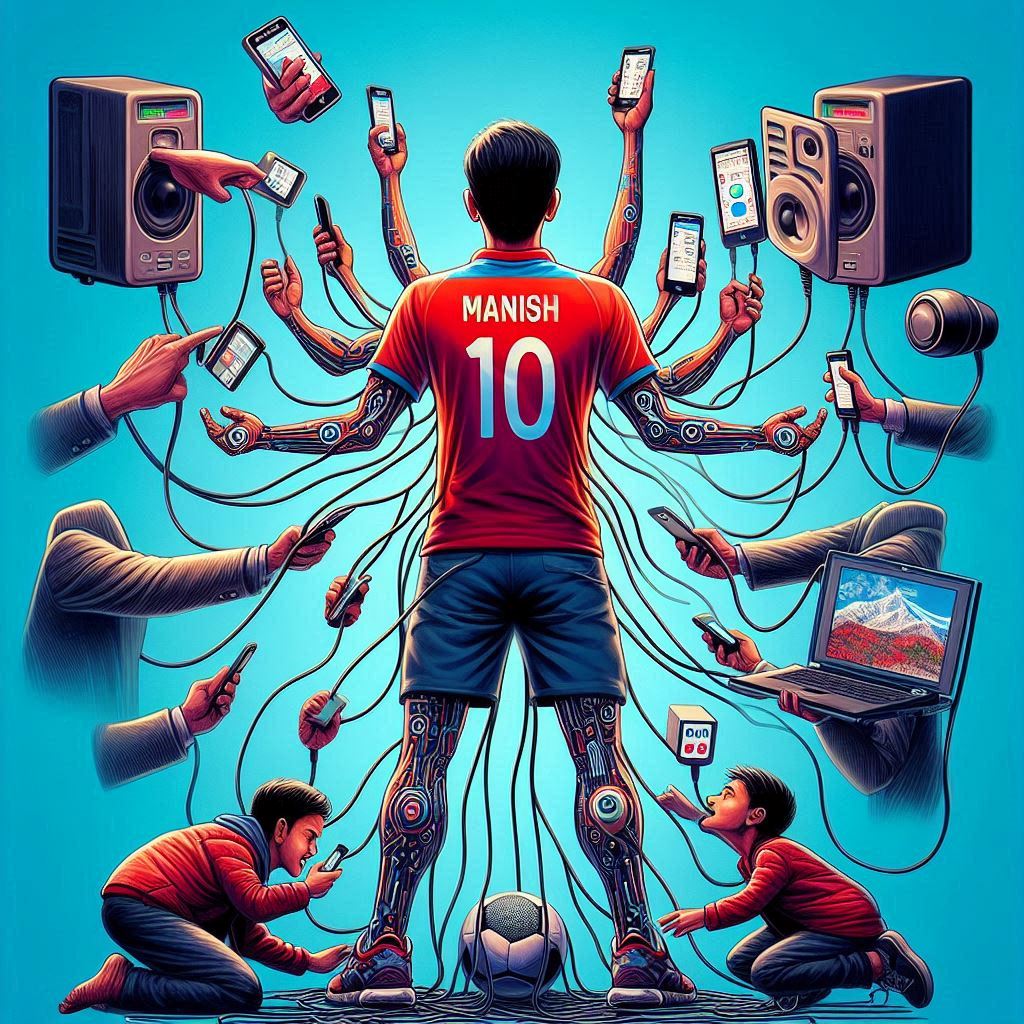The Algorithm That Knows You Better Than Yourself: Inside AI-Powered Personalization
 Manish Timalsina
Manish Timalsina
How does Netflix always know what you want to binge on next? How does Amazon suggest that gadget you never knew you needed?
From making our lives so much easier with personalized digital experiences to raising some eyebrows, AI-powered personalization is going to be huge. But have you ever wondered how much those algorithms really know about you? Spoiler-it's more than you think! Welcome to the Age of AI Personalization.
Algorithms are everywhere around us today, working quietly behind the scenes. From social media feeds to shopping suggestions, these systems analyze your behavior and predict what you want-sometimes even before you realize it yourself. This process is called AI-powered personalization, and it's the secret sauce behind many of your favorite apps and services.
But how exactly does this work? Let's break it down. How Algorithms Learn About You?
At its core, AI personalization is all about data. With every click, every search, every like, and every share, you leave behind minute digital footprints. These get picked up by AI algorithms, which, over time, start to recognize your preferences, habits, and even your emotions.
The simplest example would be this:
If you continuously watch action movies on Netflix, the algorithm will note this and offer more recommendations for movies of this genre. If you then suddenly start watching romantic comedies, Netflix's AI adjusts and offers rom-coms next time you log on.
It's not just about what you do on the platform, either. AI can tap into broader data, everything from your location and time of day to trends among people like you, to let the system fine-tune recommendations that can be almost uncomfortably precise. Why AI Recommendations Feel So "Spot On"?
Have you ever had that feeling, like Spotify's playlist was tailored just for you, or wonder how on earth YouTube knew what you want to watch next? Well, that is AI pulling rabbits out of its hat. These algorithms are designed to get smarter the more you use them. This ability to learn makes them incredibly effective.
With every use of a network or platform, it constantly builds up a store of data about oneself and curates the experience further. Over time, the algorithm appears to learn one's preferences so intuitively that the system would appear to suggest what feels intuitive—like somehow reading your mind. Creepy? Perhaps. Convenient? Absolutely!
AI in Shopping: Your Personal Shopper
Shopping
Imagine AI personalization in platforms such as Amazon. You may have just bought a camera, Amazon is already suggesting a tripod, a memory card, or even some guidebook on photography for you. It is as if the platform knows exactly what you need next!
That's not an accident: AI analyzed millions of purchases from people just like you, attempting to predict what you might want, thus saving you all that extra time and effort. That's having a personal shopper in your pocket, 24/7. The Fine Line Between Helpful and Intrusive.
By far, the beauty about personalized experiences is how irrefutably helpful they truly are, but that brings out an important question-to what extent do these algorithms know us?
That is where so many of us enjoy the convenience, while more are concerned with the privacy implications. The AI systems are always recording data and continue to collect information not only about your preferences but maybe even your behaviors and habits. Most companies tout this data as being anonymized; however, because of the volume, such algorithms could theoretically predict future actions or even identify sensitive aspects of your life.
For example, AI can tell when a person is depressed, based on what they will do online. It can even predict changes in life such as when someone is likely to change house based on browser history and buying habits. The concept of algorithms being able to "know" so much about you is exciting and unnerving at the same time.
Balancing the Benefits and Risks
A cause for alarm, then? It all comes down to a question of balance. Undeniably, AI-powered personalization has many advantages: it saves time, provides recommendations tailored to our tastes and preferences, and helps companies provide better user experiences. On the other hand, consumers have to be conscious of how much personal information they are willing to give out.
Good news is, more and more companies are becoming transparent in data collection and use. Most provide means of limiting tracking or opting out of personalized recommendations. It's all a question of balance between convenience and privacy.
Artificial Intelligence Future of Personalization
As AI is getting smarter and smarter, so is personalization. In a few years, your virtual assistant may know your daily routine inside and out, adjust your schedule for you, order groceries for you, and even suggest activities depending on your mood. Think of it as a next-level version of today's algorithms, capable of booking your doctor’s appointment before you even realize you need one.
But as these systems get even smarter, questions multiply. How much control do we want to cede to AI? Suddenly, an exciting-even-more-thought-provoking journey began.
In a world where it seems AI knows better about ourselves than ourselves, let the advantages be utilized and the implications be kept under much scrutiny.
After all, the algorithm can be smart, but you are in control.
Subscribe to my newsletter
Read articles from Manish Timalsina directly inside your inbox. Subscribe to the newsletter, and don't miss out.
Written by

Manish Timalsina
Manish Timalsina
I’m passionate about all things tech, from AI and software development to prompt engineering and coding best practices. On a journey to share insights, tutorials, and experiences in the world of technology. Let’s explore the future of AI and development together!